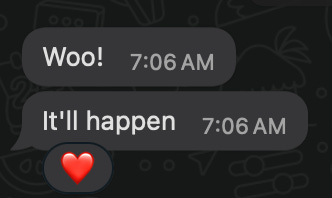About six weeks into the querying process for my novel THE LILAC ROOM, I noticed a peculiar pattern in my manuscript requests: I had received multiple manuscript requests from agents who just requested a query letter but no requests from agents to whom I had sent both query letters and sample chapters. What this trend suggested was that my query letter itself was strong but my sample chapters were lacking in comparison. After querying about 60 agents, therefore, I decided to go back and revise my opening pages to be as strong as they could be. The problem was that after reading through and editing my own novel about 500 times, I believed my opening pages were strong.
You know the feeling: read a single word over and over and over again, and after about the tenth read, the word looks foreign to your eyes and begins to lose its meaning. Well, try doing that with an entire novel. I needed to step back and get a fresh pair of eyes on my work.
There are a few resources that you can use when revising your query materials. Here are some options that you can consider as you perfect your work for the submission process.
Bother Your Friends
Before querying, I showed the opening pages of my novel to some of my friends, who provided valuable feedback in terms of what to work on. Your close friends and loved ones will be your most dedicated cheerleaders throughout the publishing process, so don’t be afraid to turn to them for support. I certainly would have given up a long time ago if I didn’t get texts like these from my amazing friends:
Because you know that your friends have your back, they will be most willing to offer constructive feedback to help you quickly reach the finish line. Show your friends your query letter, synopsis, and opening pages and start revising from there!
Make Use of Social Media
The downside to my amazingly nice friends is that they might have been a bit too nice early on in the process. My friends are my friends because many of them think like me and enjoy similar ideas in a book—as such, they’re more likely to resonate immediately with what I’ve written or are just more reluctant to provide constructive feedback. Because my friends mostly enjoyed my opening pages, I wanted to get a larger sample size of readers—readers who have never met me and have no personal stake in my work. Luckily, I have a decent social media presence and asked many of my Substack subscribers and Instagram followers to give my opening pages a read. I received feedback from about 20 people, and with the exception of a few outliers (like the guy who said my manuscript was not close to being publication-ready—rude and untrue considering that ten agents are now reading the manuscript), the feedback was consistent across the board, and I got a good sense from a larger beta-reader group of what worked and what didn’t work. I made appropriate changes and, after a few days, reached a new set of opening pages that I was quite happy with. These are the current opening pages I am sending out to for my next batch of queries, so thank you all so much for your help and support!
If you do not have an established social media following, Reddit is your best friend. I’ve seen so many calls for beta-readers on Reddit, and while you might have to return the favor, those writer subreddits are great ways to get an objective pair of eyes on your work.
Join a Writing Group
This past week, I also joined a writing group run by the Jewish Book Council. I mentioned earlier that this might not be the optimal option for writers who are pressed for time—quite frankly, I do not have the bandwidth in my schedule to sit there reviewing multiple manuscripts just to hear feedback from other unpublished authors on my own work—but if you do have the time and energy to review other people’s writing, or if you enjoy doing so for fun (I do that for my job every day and get paid to do so, so reading unpolished writing is not exactly my idea of “fun”), a writing group can be another great avenue to secure valuable feedback. I do appreciate my writing group for the connections, however—if an author gets published before I do, that might lead to a helpful referral.
Incorporate Feedback from Agents
I received my first rejection from an agent who read my partial manuscript, which was a bummer, but on the bright side, agents who request your manuscript often offer personalized support that can help you hone your manuscript for other agents. I took some of the agent’s feedback into consideration and strengthened my opening pages, which I hope will now have broader market appeal (it’s all about market appeal at the end of the day, of course). Personalized feedback from an agent can be very valuable in navigating the industry—these are industry professionals who are probably more qualified to state what publishers are looking for than anyone else out there, so use those rejections to your advantage.
Hire a Professional Editor
This option should be a last resort. You do not need a professional editor before securing an agent. Professional editors are costly, and once you sign with an agent, you will be paired with one free of charge. Hiring a professional editor this early on in your publishing journey is sort of like getting a Master’s degree as a stepping stone to applying to PhD programs—you do not need a Master’s to apply to PhD programs, and most PhD programs will fund your Master’s as a part of their curriculum. Though it certainly won’t hurt to have a professional editor review your work—just as it won’t hurt to have a Master’s degree before the PhD application process—working with a professional editor can be costly and does not guarantee placement with an agent. If all else fails and your manuscript needs a huge overhaul before it is agent-ready, you can certainly turn to a professional editor, but I recommend exhausting all of the above options before hiring a professional—friends, colleagues, and agents will provide similar feedback free of charge!
Whichever method you choose, don’t fret! Revisions are part of the publication process for even the strongest of writers, and once you’ve done the hard work, the reward comes soon after.
Journey to Publication - Week 8 Updates
It’s week 8 of querying my novel THE LILAC ROOM. With my updated pages, I’m feeling confident that we’ll land an agent soon. I received several manuscript requests this week, bringing the total up to ten:
I also sent updated manuscripts to all ten agents currently reviewing my work. Hopefully, they’ll resonate with the revised opening chapters and see strong potential in THE LILAC ROOM.
I also updated my author bio in my query letter to include this banger of a line:
As a first-generation post-Soviet Azerbaijani-American, I am fascinated by the pitfalls of Western American capitalism, which inspired the themes I explore in my novel.
For those of you who are wondering, I am indeed a first-generation post-Soviet Azerbaijani-American, though I do not go around The Real World™ describing it like that, and my novel does, in fact, tackle the pitfalls of Western American capitalism, though it really depends on how you interpret the novel’s message. To be sure, I am a big fan of Western American capitalism, but agents don’t have to know that part.
After this slight revision to my query letter, I started getting additional manuscript requests—some of them within a day or two—and I’m up to ten requests now (eleven if you count the woman who already turned me down after reading the partial manuscript). Correlation does not imply causation, but one does have to wonder…
Do whatever it takes, I guess.
With ten agents reading my manuscript, I am more than confident that at least one of them will like it. Now, we wait.
I went very aggressive on queries this past week. We are now up to 144 total queries. Here comes the query counter:
Query Counter - Week 8
Query Rejections: 42
Total Manuscript Requests: 10
Manuscript Request Rate: 6.6%
Total Queries: 151
See you next week!











Just curious, does your query letter or opening chapter also emphasize the entertainment value of the work in addition to the social/literary value?
Life is to art as those grapes are to wine. Big Love, you are a loving and brilliant creature. 🌺🕊️